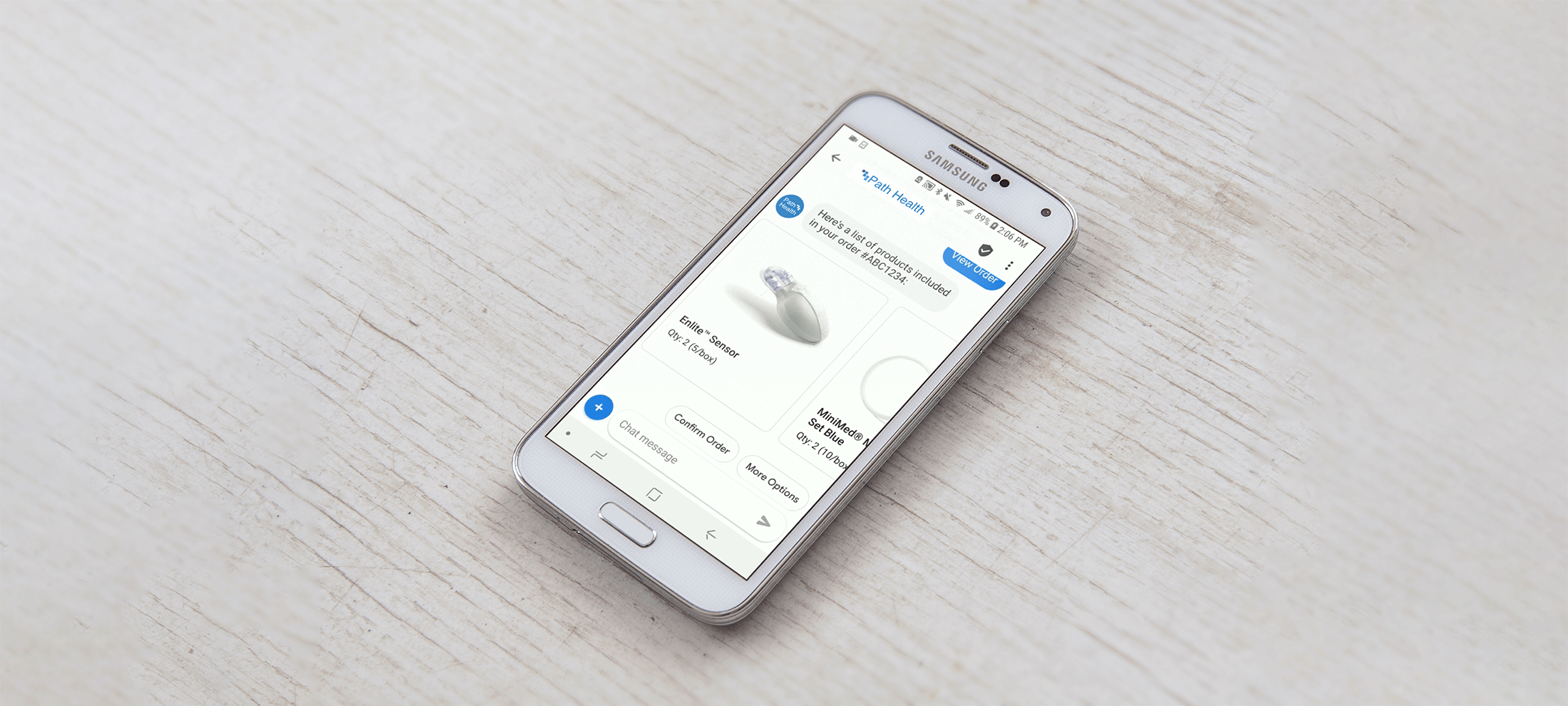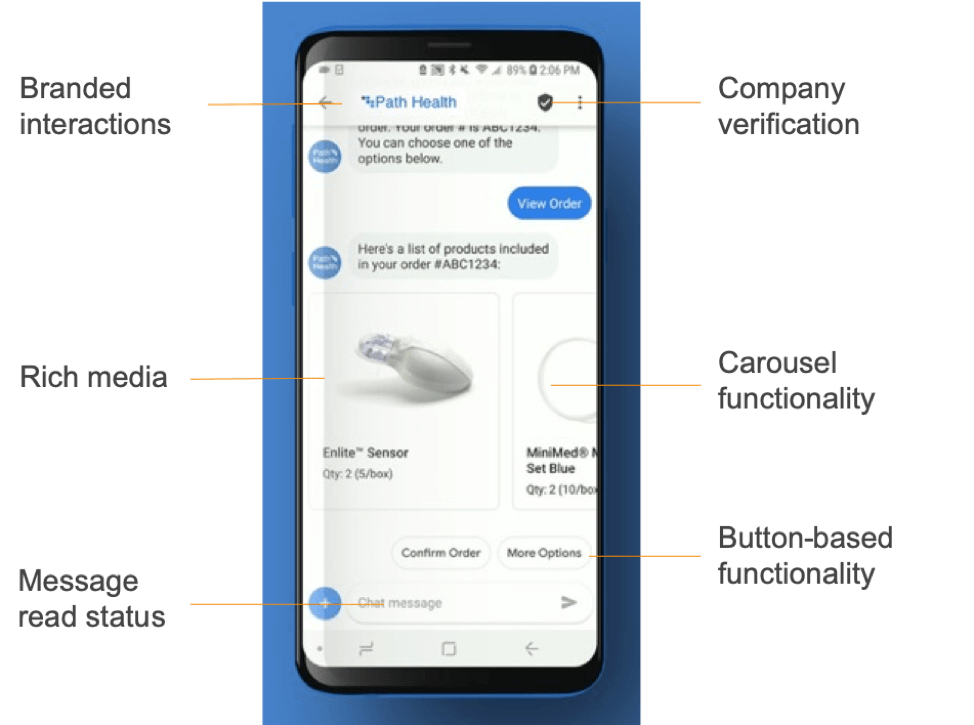Positive change lies ahead for the humble text message. The default messaging on your phone is the most loved mobile communication channel by consumers (Americans send over 6 billion messages a day) but it has remained unchanged for over 25 years.
Not any longer: enter rich business messaging (RBM), enhanced messaging experiences that incorporate branding, button-based functionality, and rich media that are delivered through the phone’s default messaging app. Consumers benefit from app-like functionality with no download needed.
This is a communication game-changer. Apple and Android have their own versions of RBM—Apple Business Chat (ABC) and Rich Communication Service (RCS), respectively. Carriers and phone manufacturers have been working to align on messaging standards for RBM, which has slowed progress in recent years. However, recent announcements from Google and the carriers at the end of 2019 indicate the market will rapidly evolve in 2020.
Rich Business Messaging presents is a major opportunity for healthcare organizations. Over the last 15 years, healthcare has struggled with app adoption and many healthcare companies have turned to text messaging due to the almost ubiquitous adoption and exceptionally high read rates. RBM is an advanced messaging service that combines the best of both worlds. In 2018, as part of Google’s early access partnership, mPulse introduced RCS to key healthcare partners and discussed the opportunity at the Mobile World Congress of Americas with representatives from Google, Sprint, GSMA and mPulse Mobile.
The value was clear from a consumer engagement standpoint, and leading healthcare organizations were quick to launch proof of concepts. Read the press release here.
ABC and RCS – What’s the Difference?
Apple controls its own messaging ecosystem and its iMessage service is the foundation for Apple Business Chat – its business messaging platform. Apple is rolling out ABC in limited fashion, with only a handful of large consumer brands having access such as Home Depot and Hilton Hotels. Early examples suggest ABC will function as an inbound customer service channel. Apple has not ruled out adopting the RCS standard, and the mobile industry may force Apple to get aligned.
RCS will likely have a bigger consumer impact as brands will leverage it for outbound as well as inbound interactions. It has been widely adopted in countries around the world where Android phones dominate, such as Japan, North and South Korea, and South America. The rollout of RCS in the US has been slow as the key players (Google, the phone manufactures, and the carriers) have sought alignment around a universal profile.
Google took a bold move at the end of 2019 by making RCS available to all Android users through its Messages app. This circumnavigated the mobile phone carriers and was a response to a collaborative move by AT&T, Verizon, T-Mobile and Sprint to develop their own standard for RCS, which will be rolled out in 2020. As the dust settles, the end result looks to be widespread adoption of advanced RCS messaging by US Android phone owners in 2020. This represents a huge opportunity for healthcare organizations.
The Opportunity for Healthcare Organizations
mPulse is collaborating with leading healthcare organizations on their RBM strategy and is developing exciting programs that have the potential to transform how healthcare consumers engage. Whether it is commerce-based transactions like the program developed with Medtronic Diabetes for health supply reorders, or programs that leverage the rich media capabilities to improve awareness and utilization of health services, the possibilities are enormous. As such, leading organizations are building RBM capabilities into their strategic member engagement solutions.
To discuss RBM capabilities or how your organization can leverage rich business messaging, fill out the form here.





